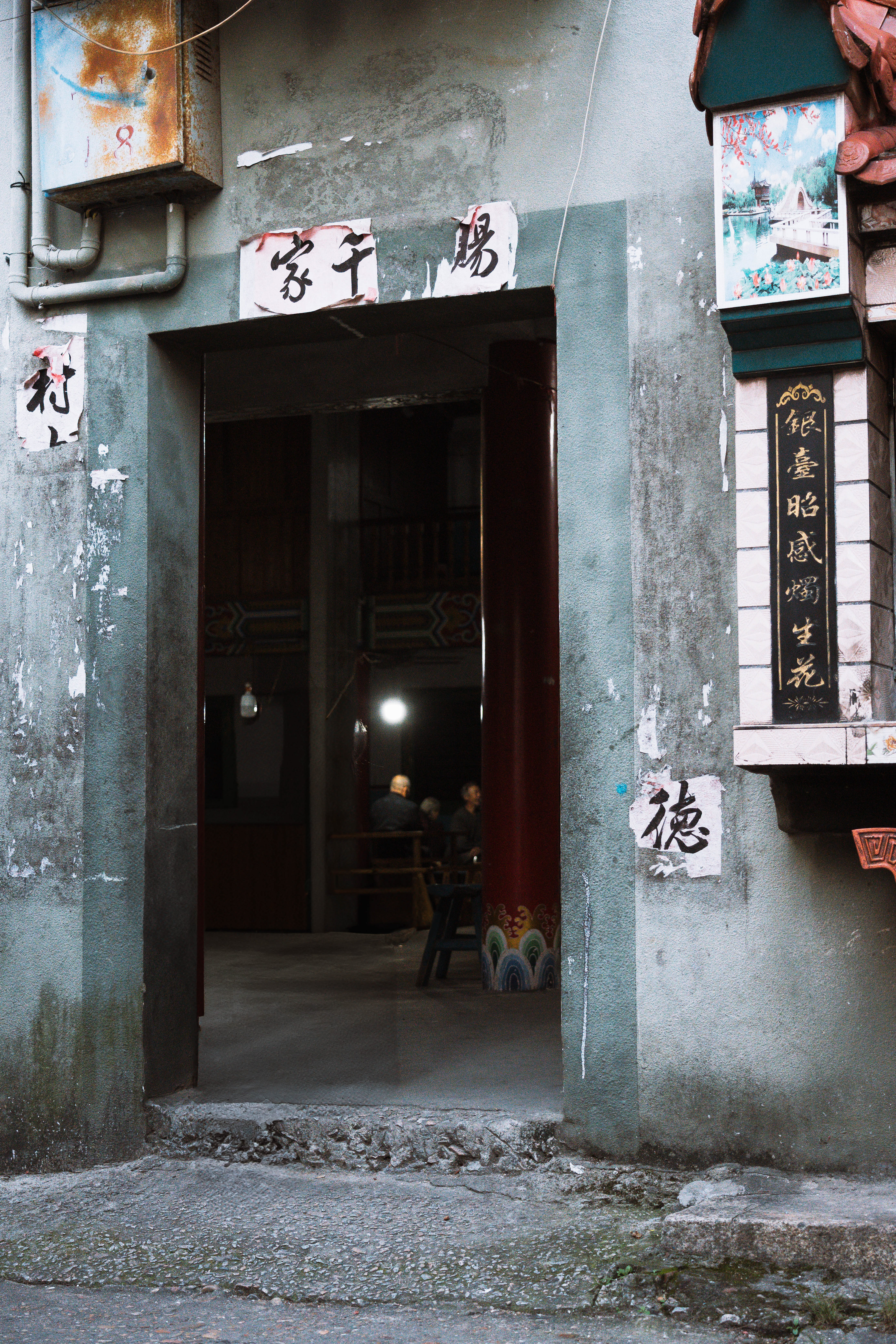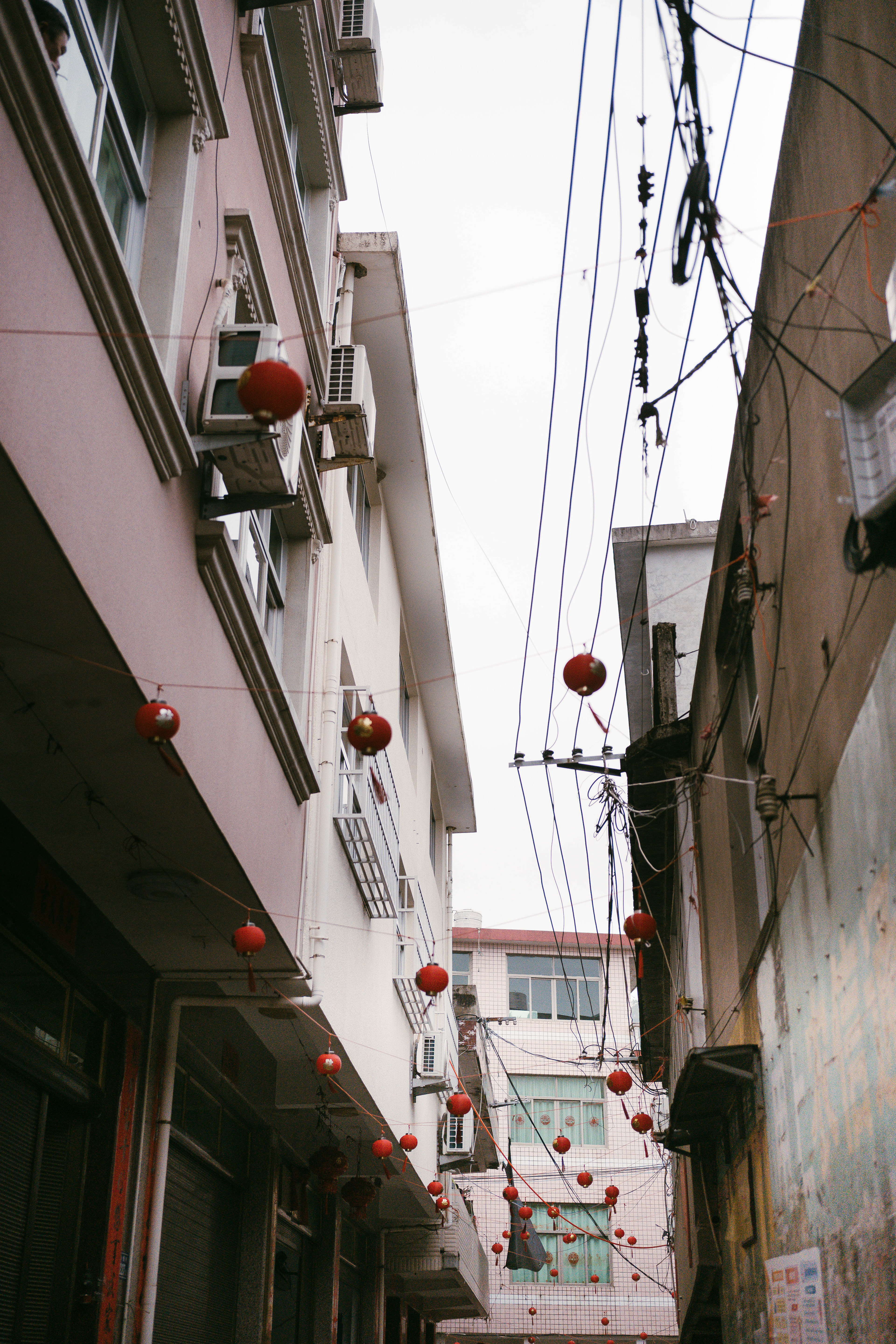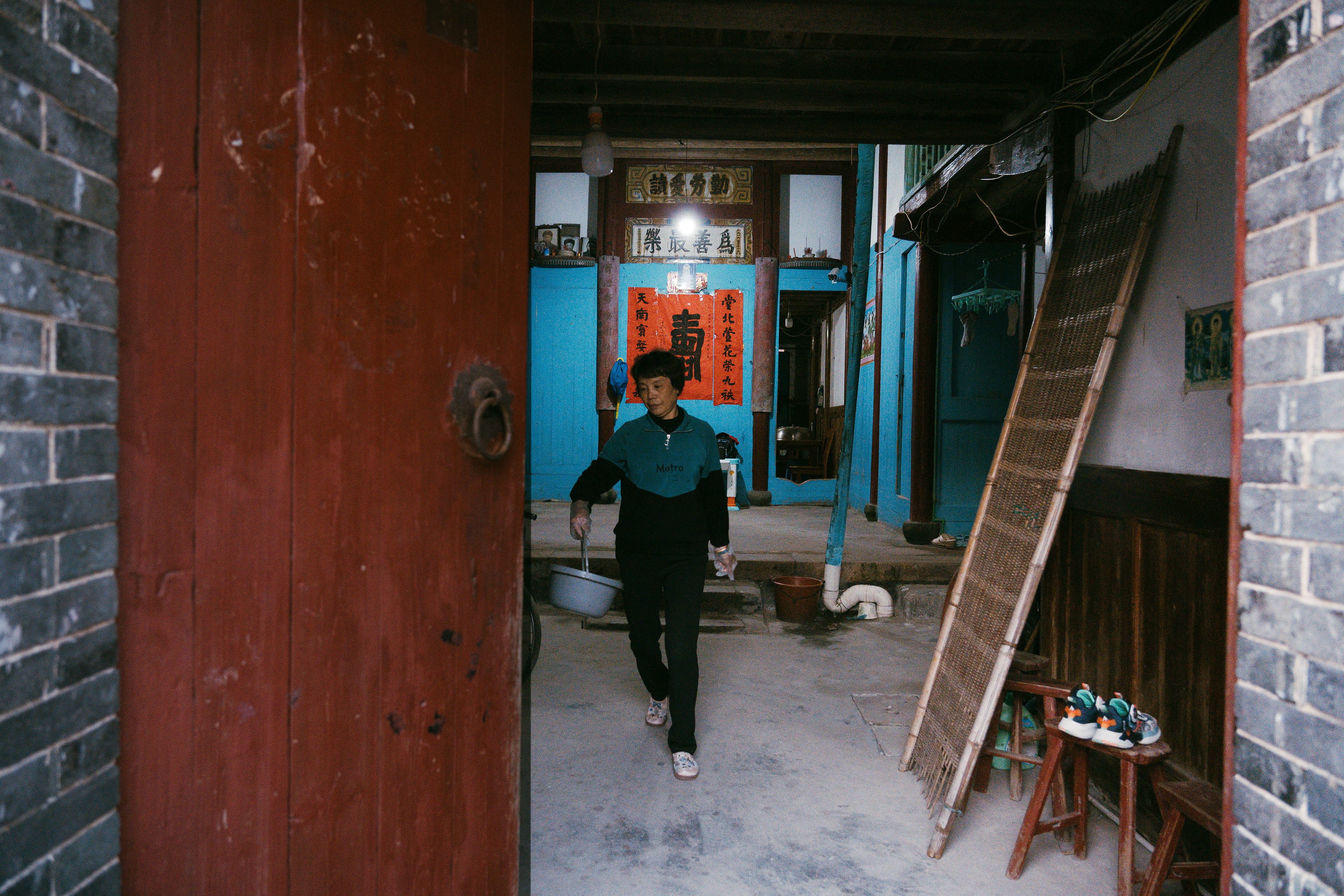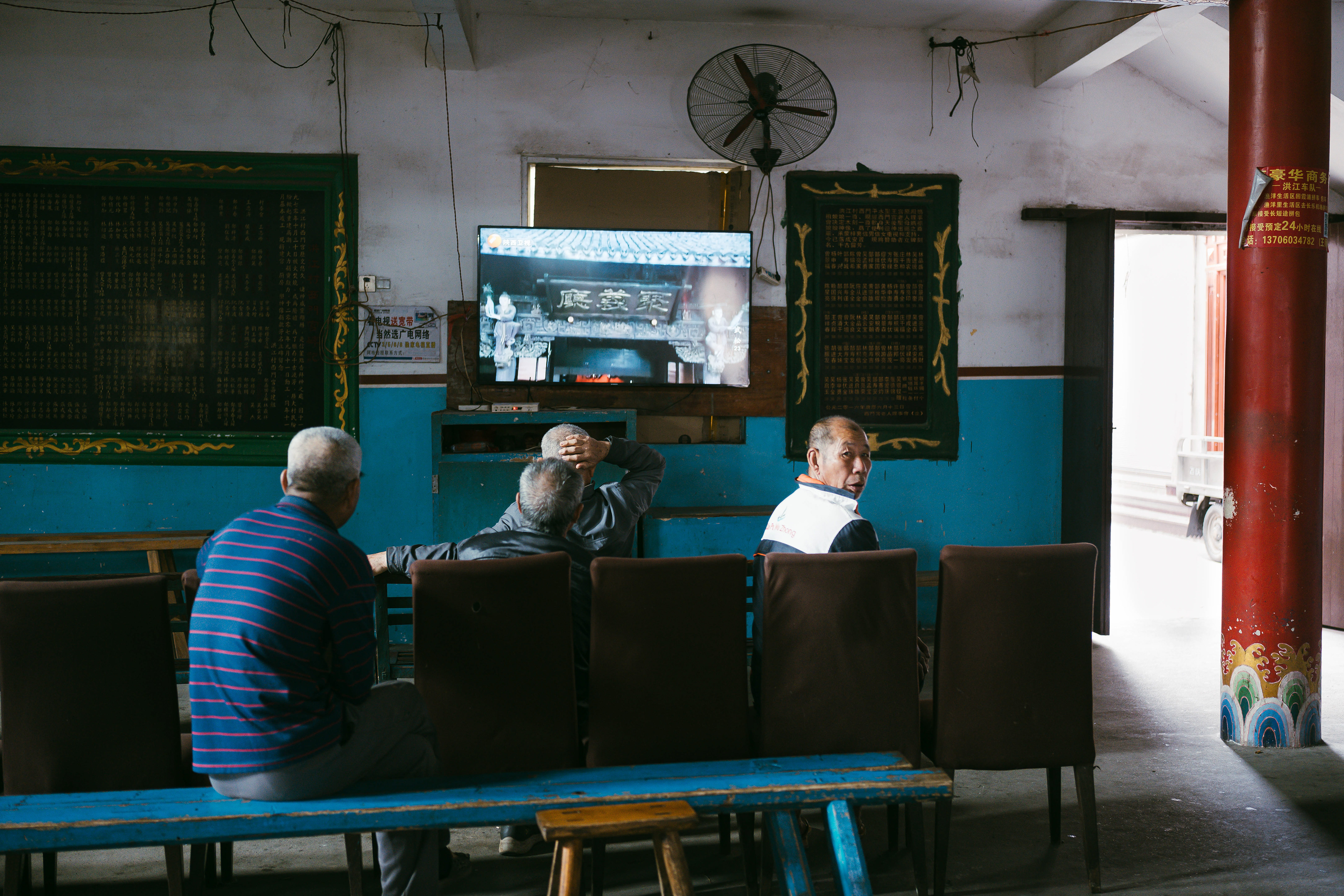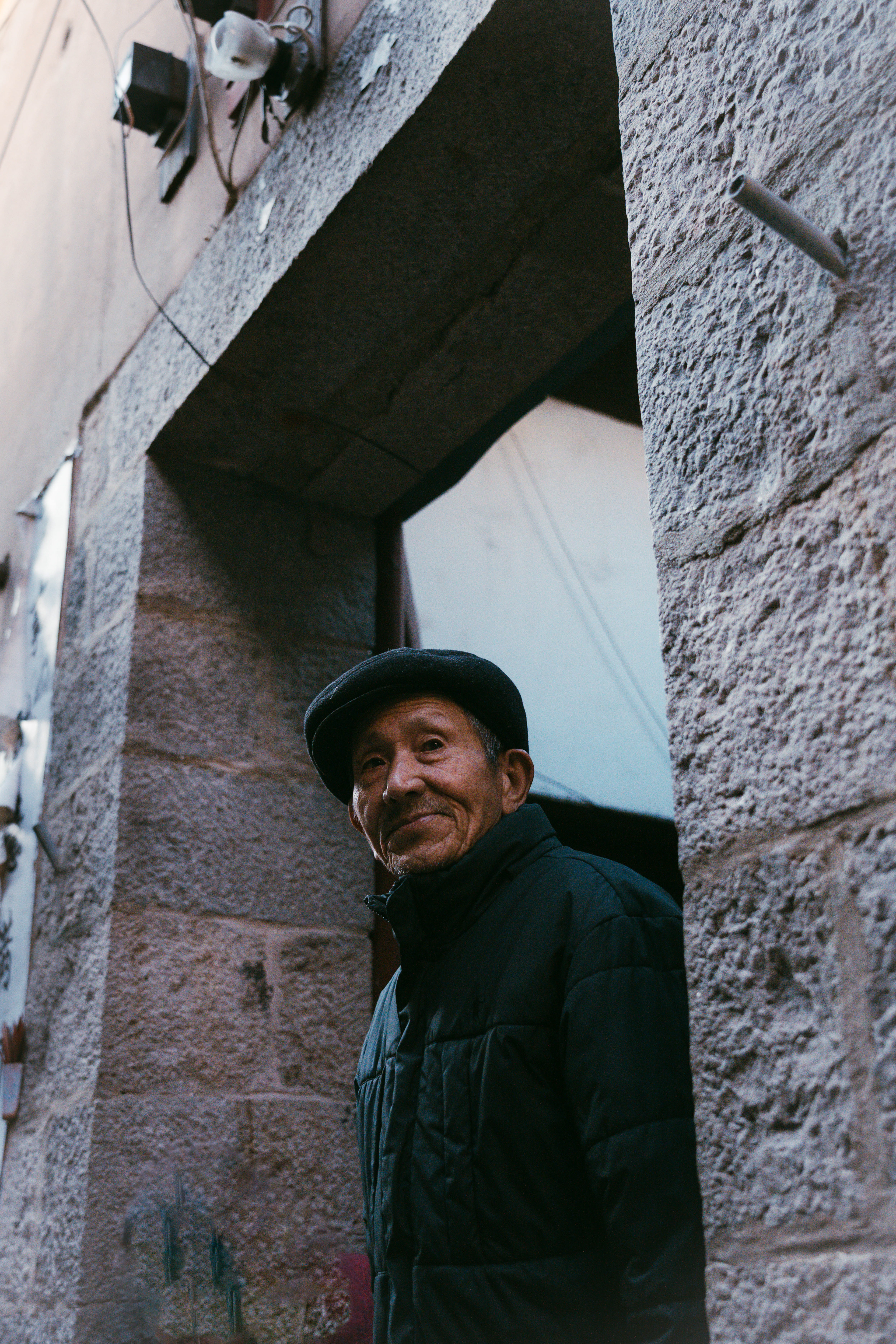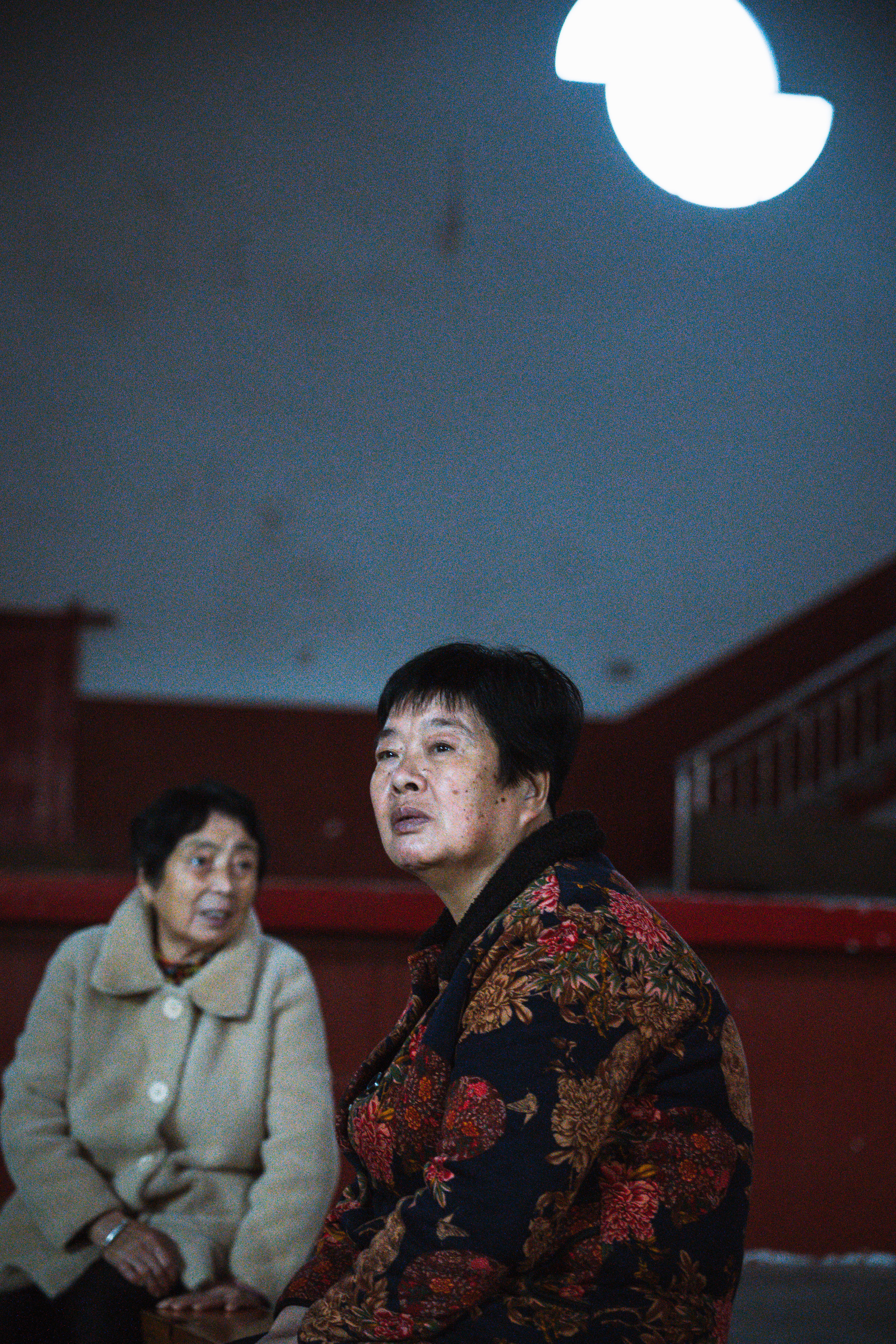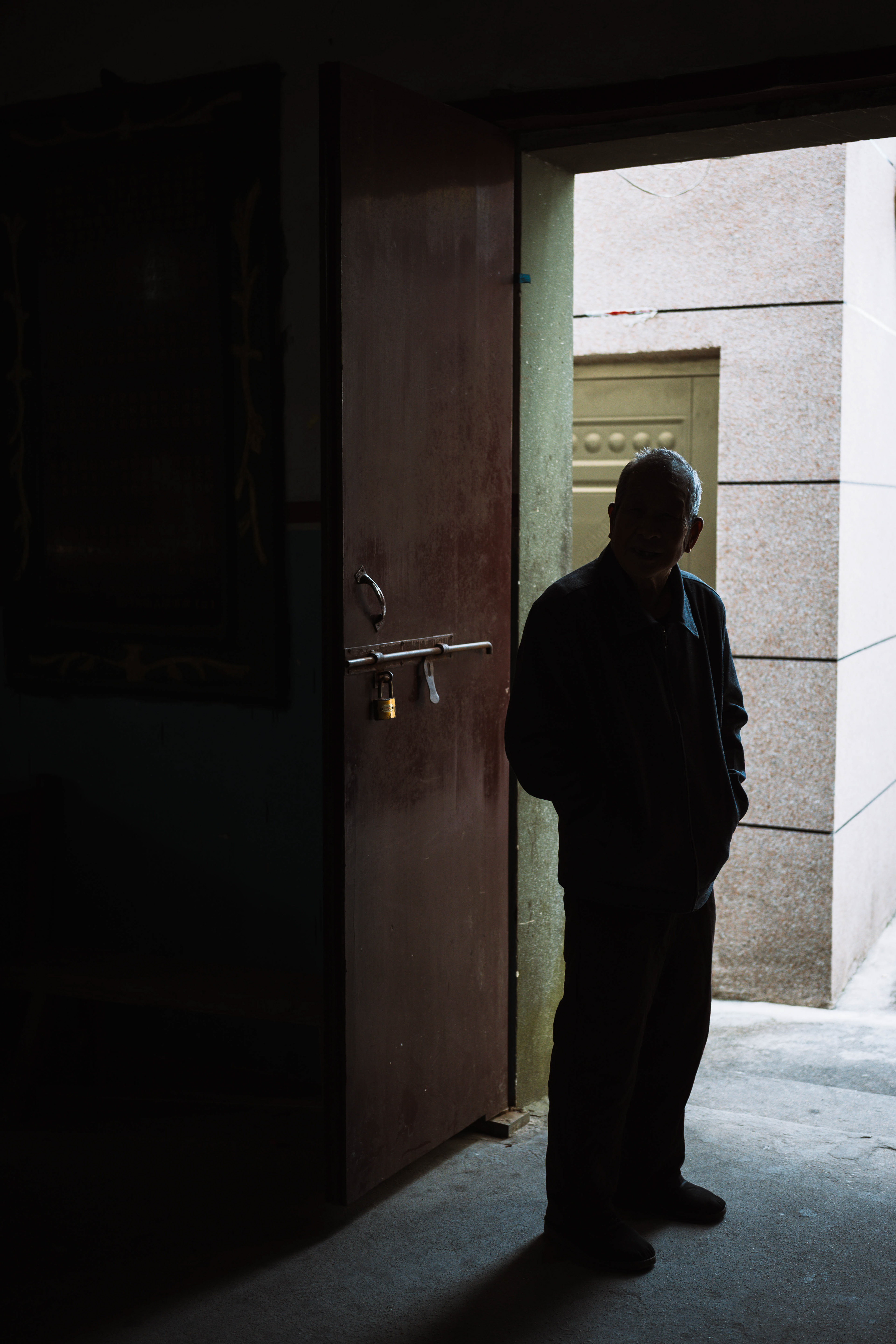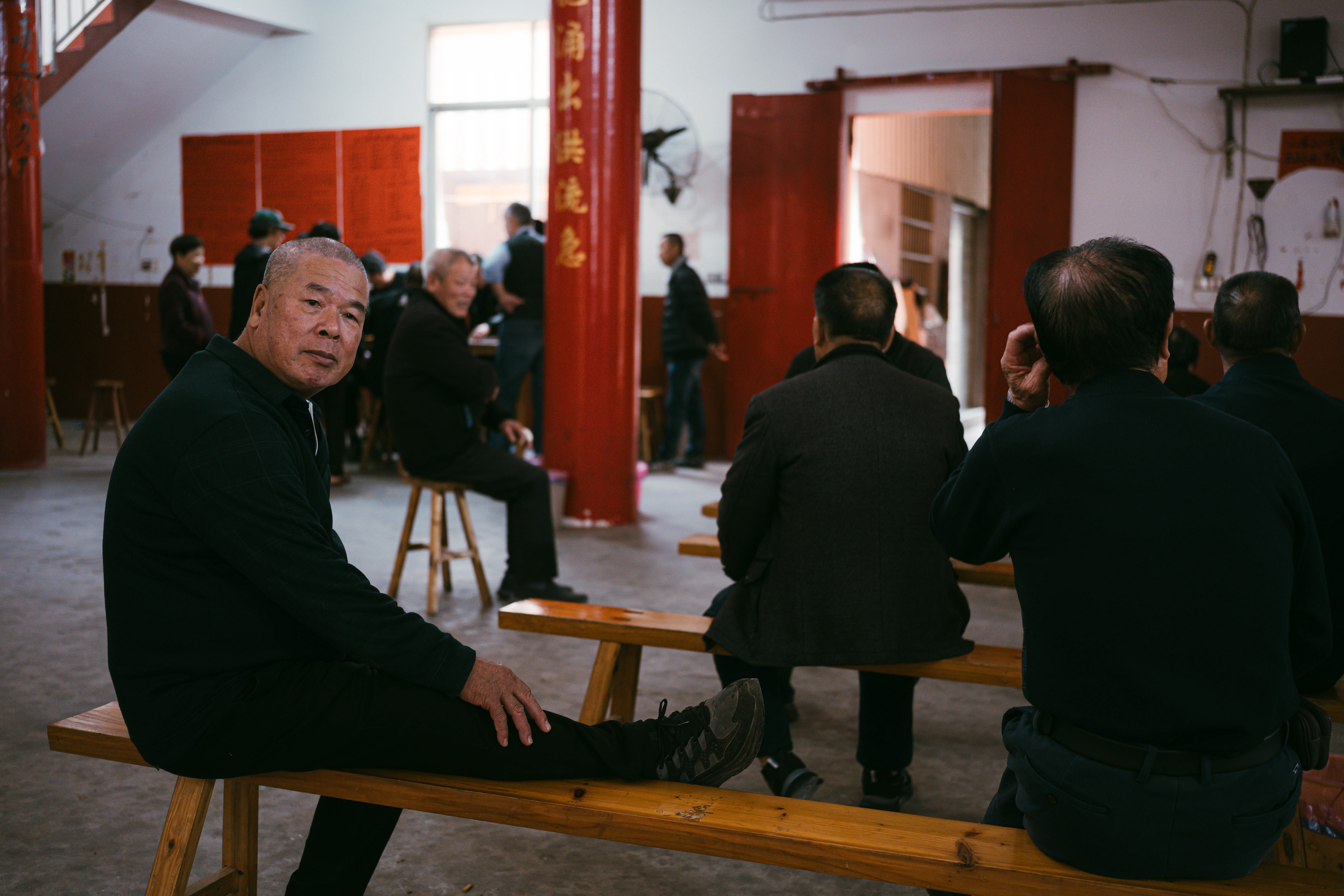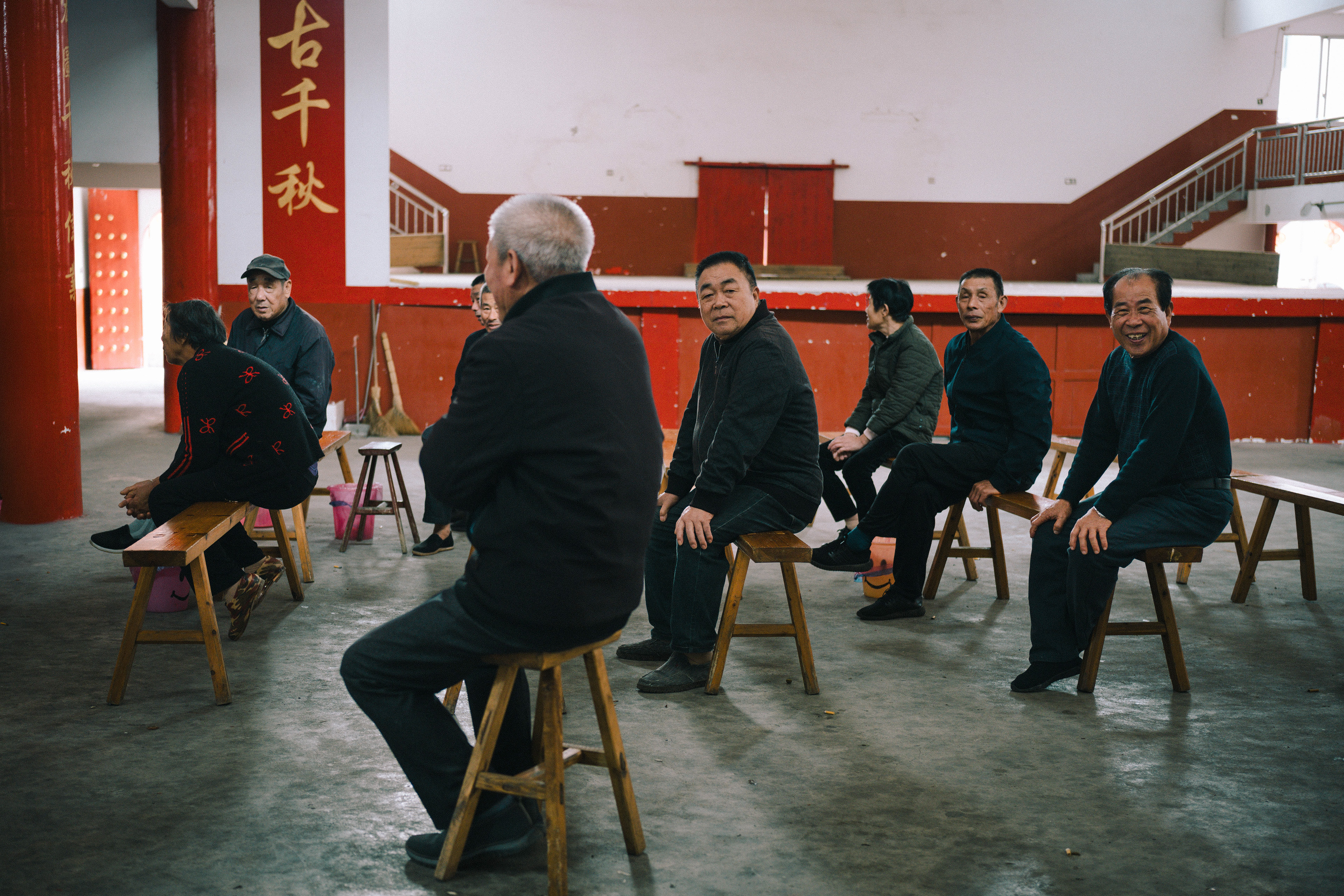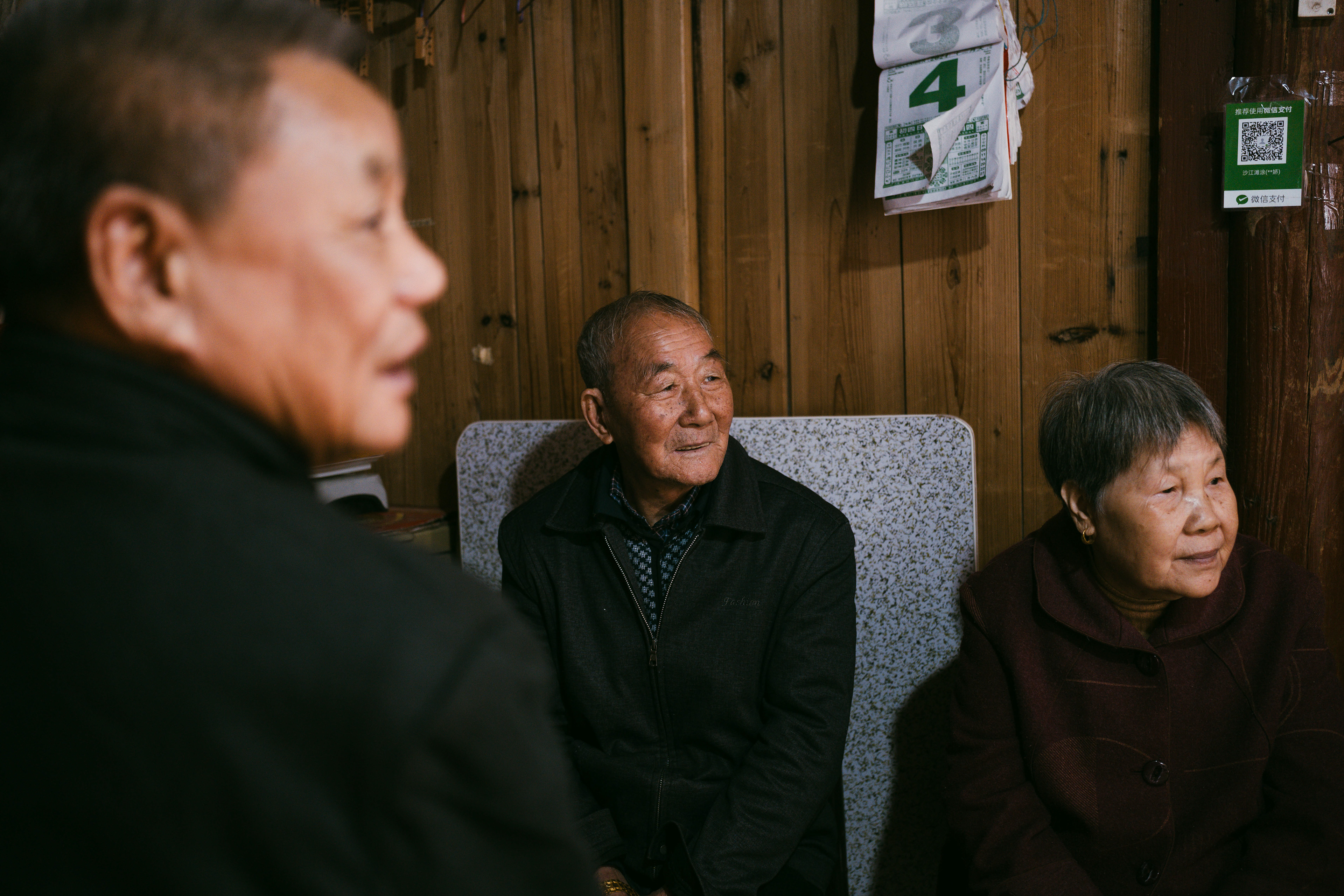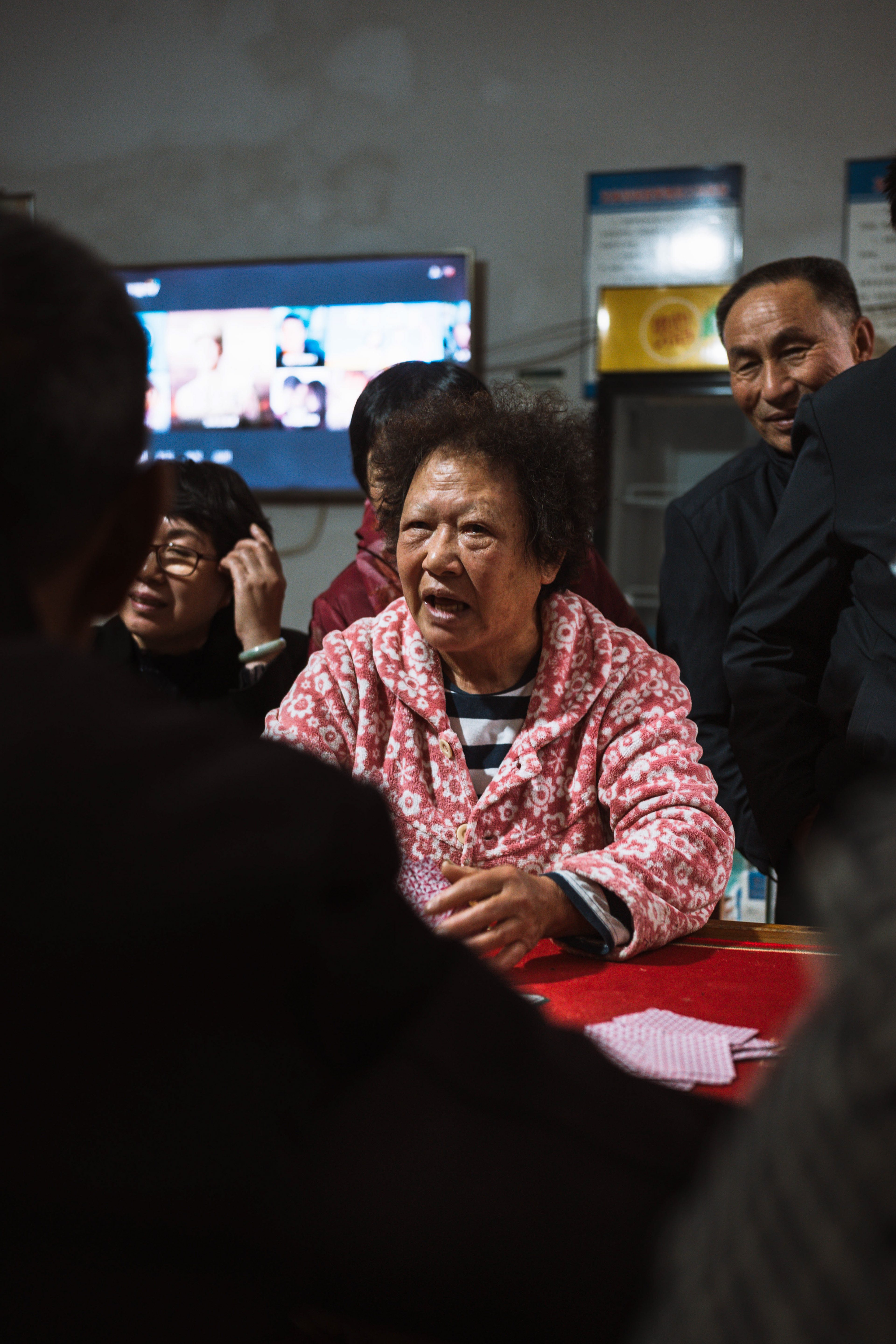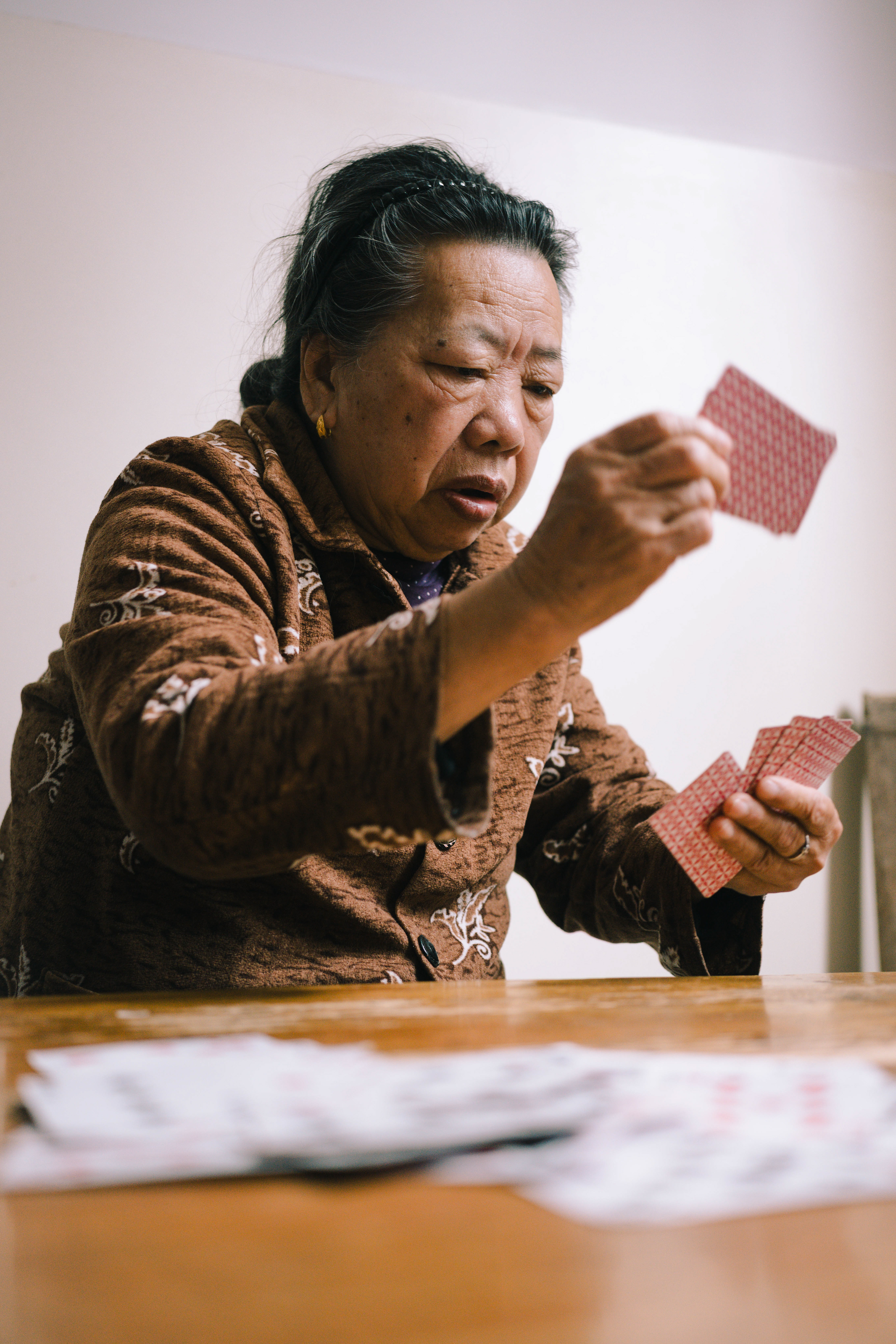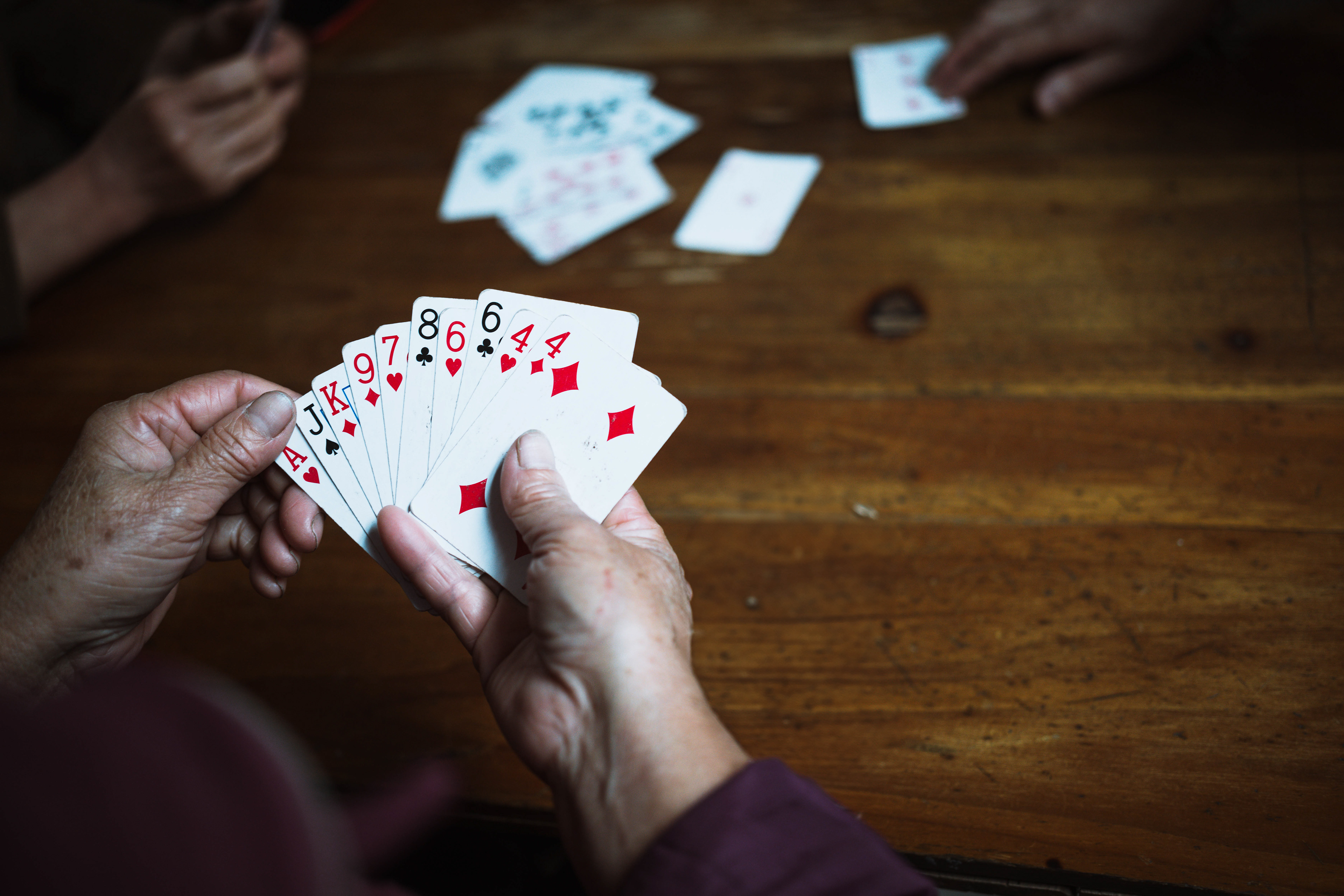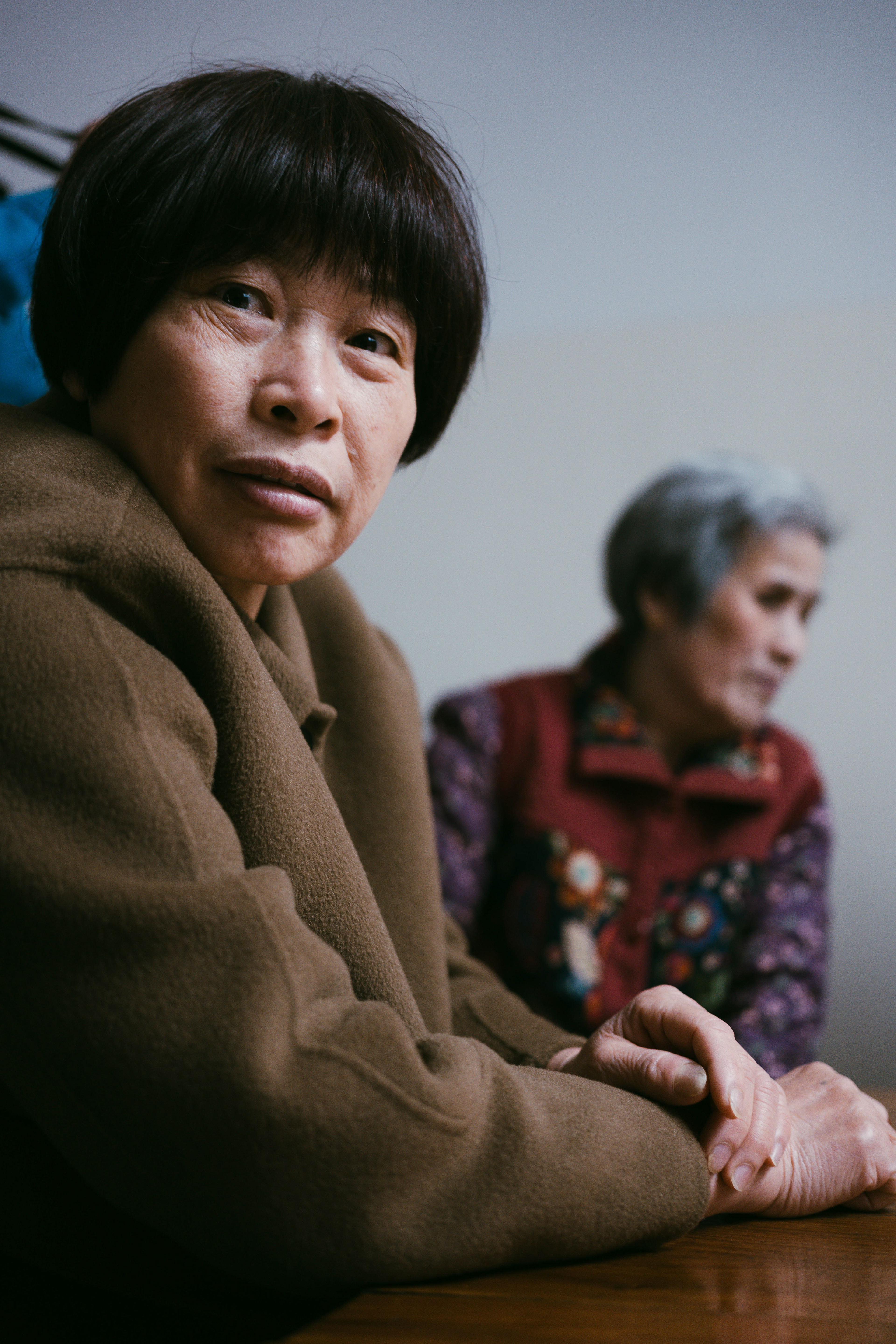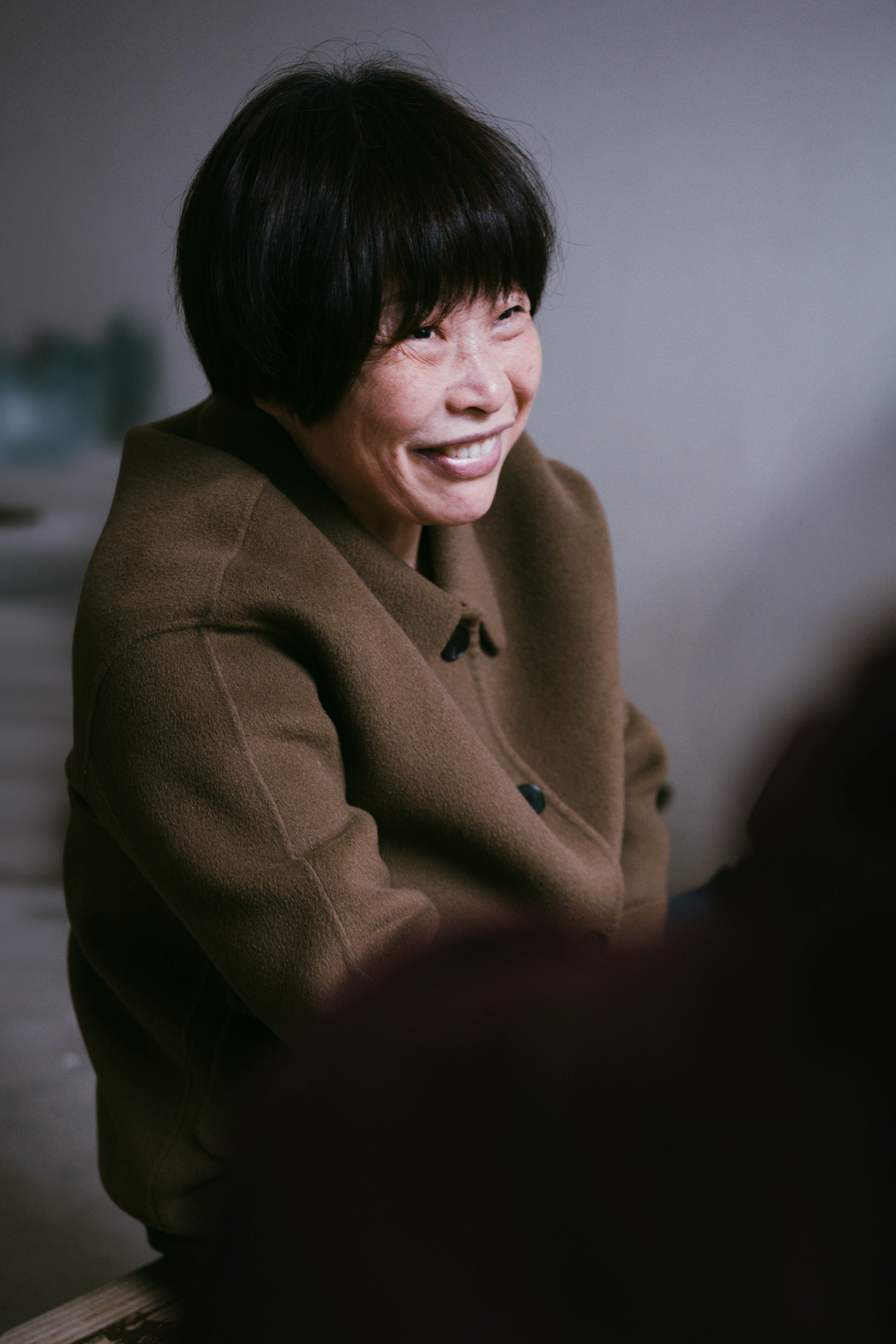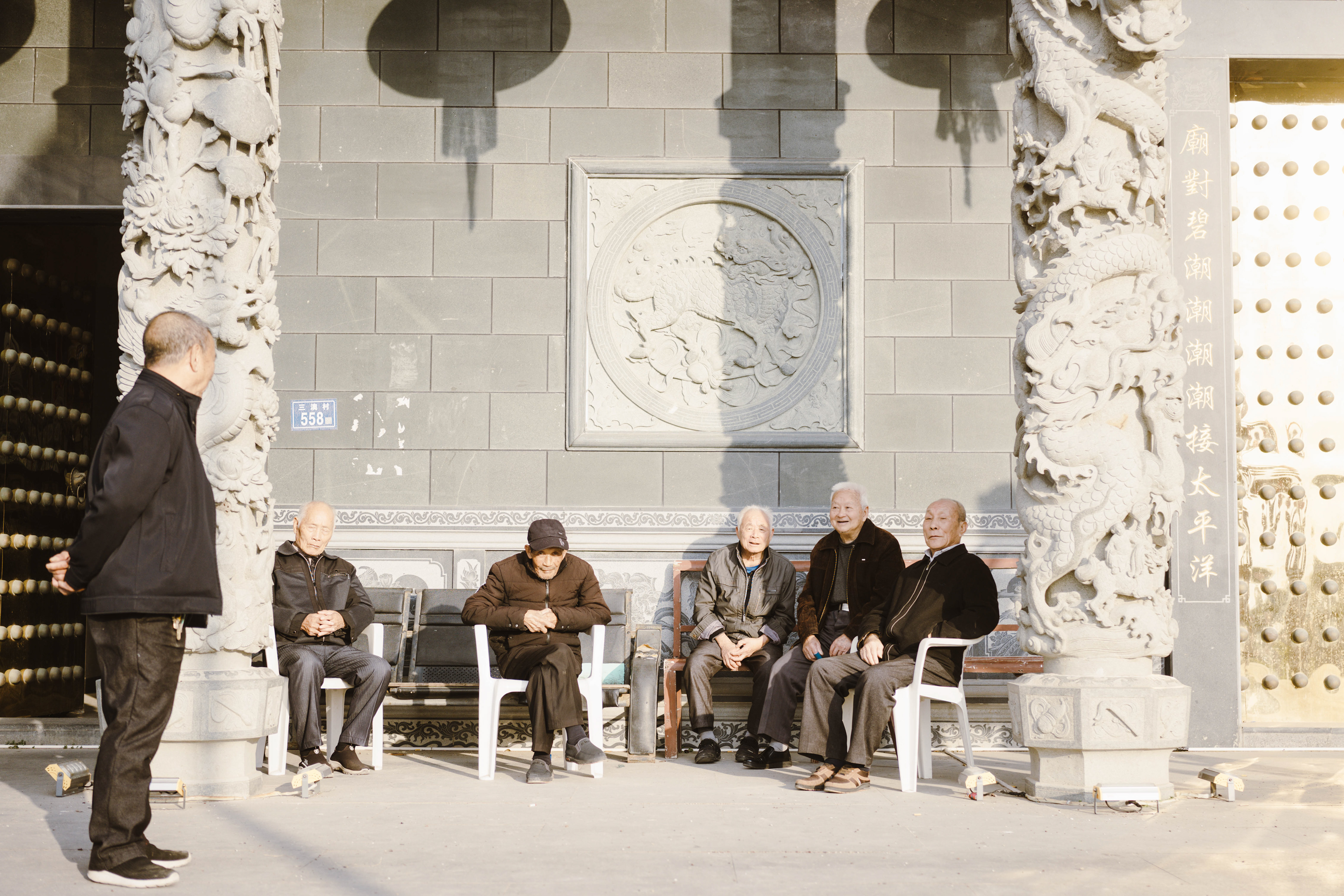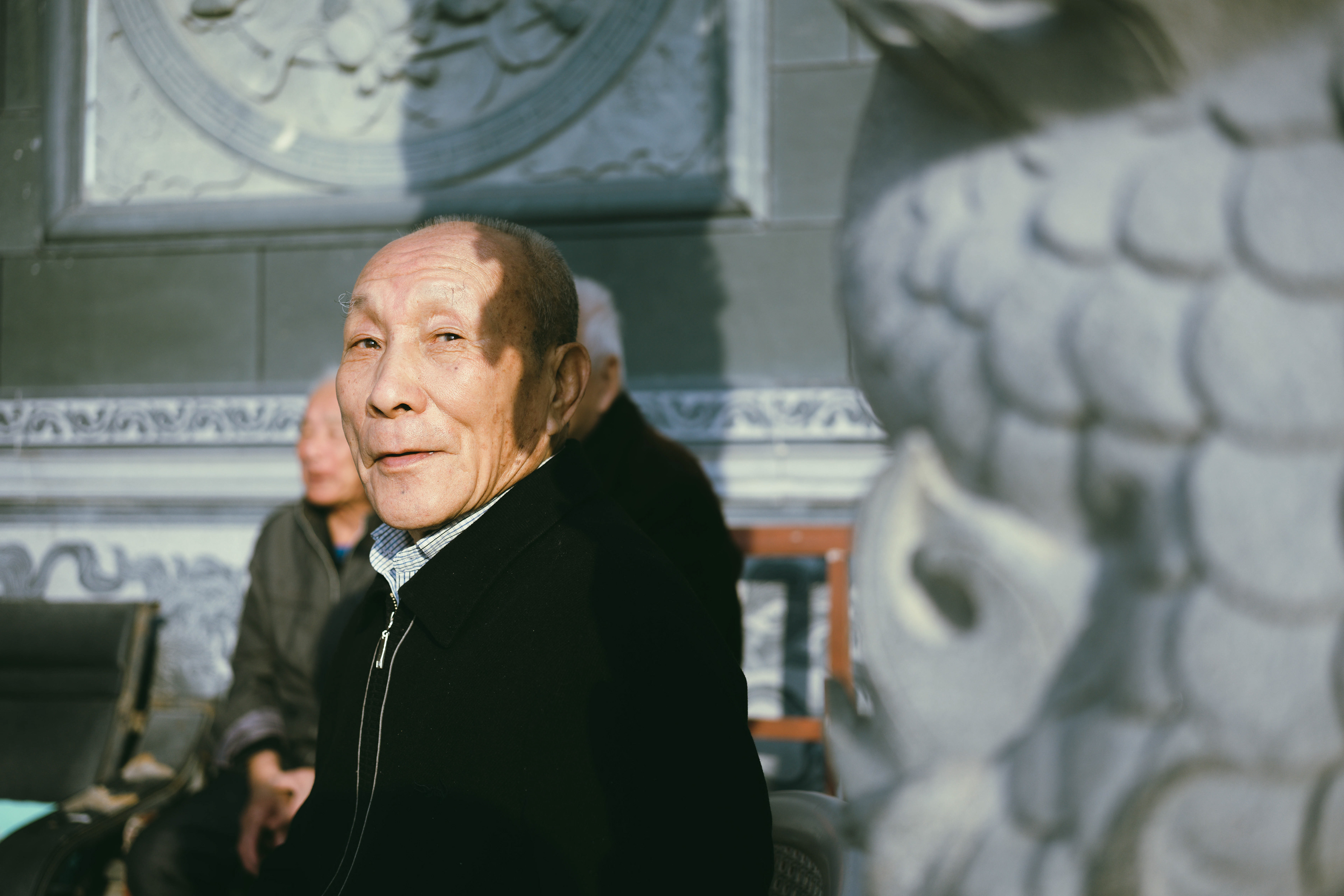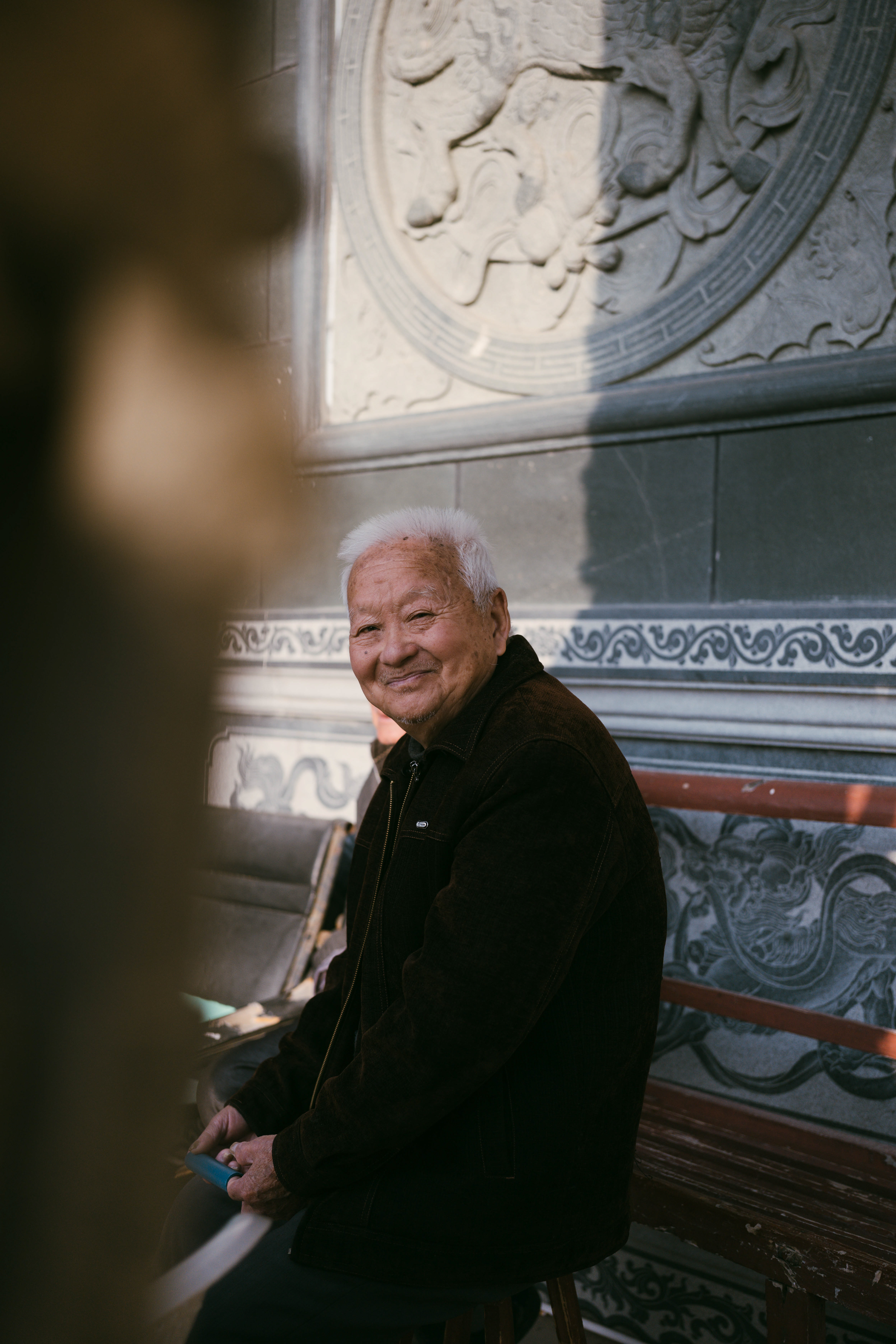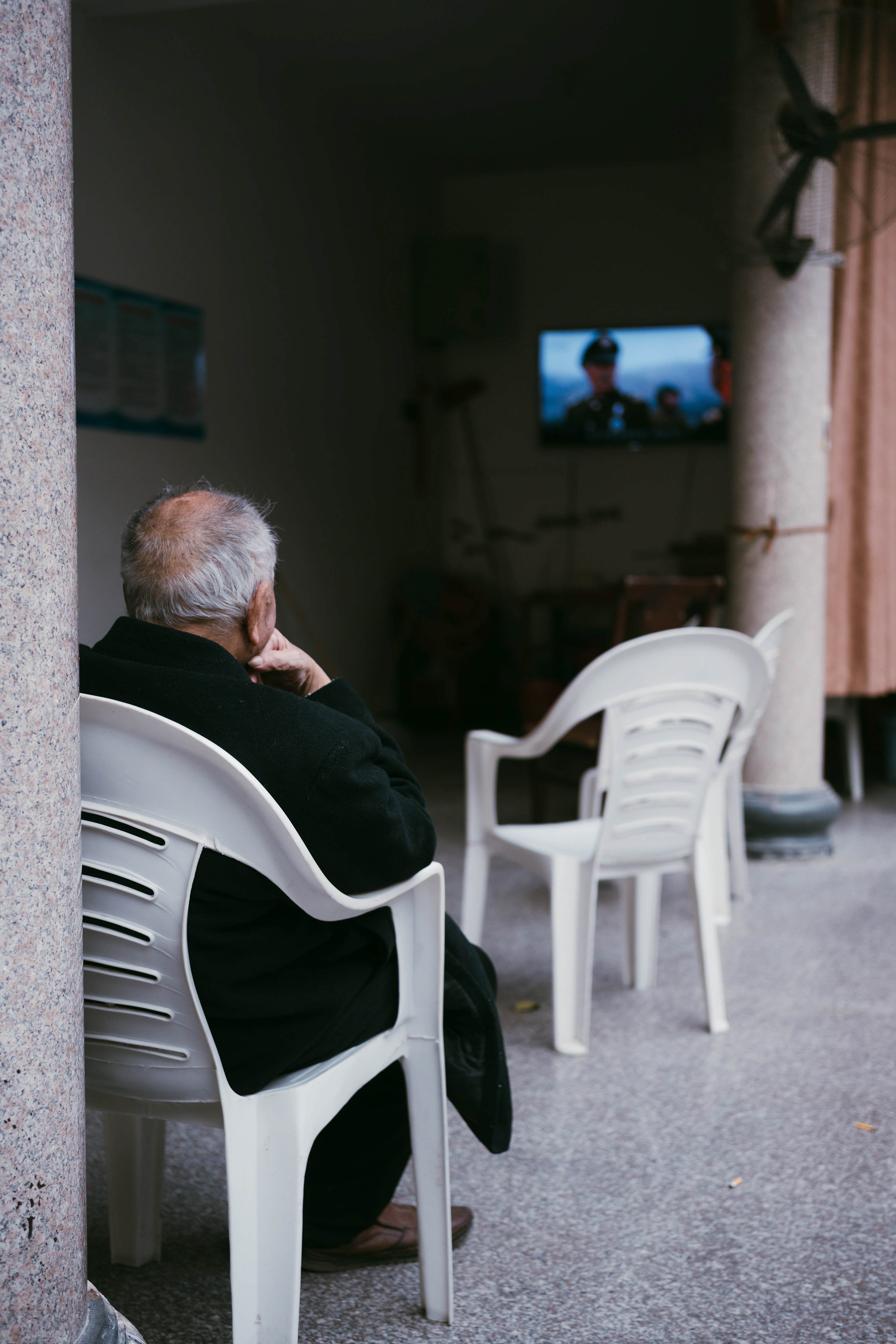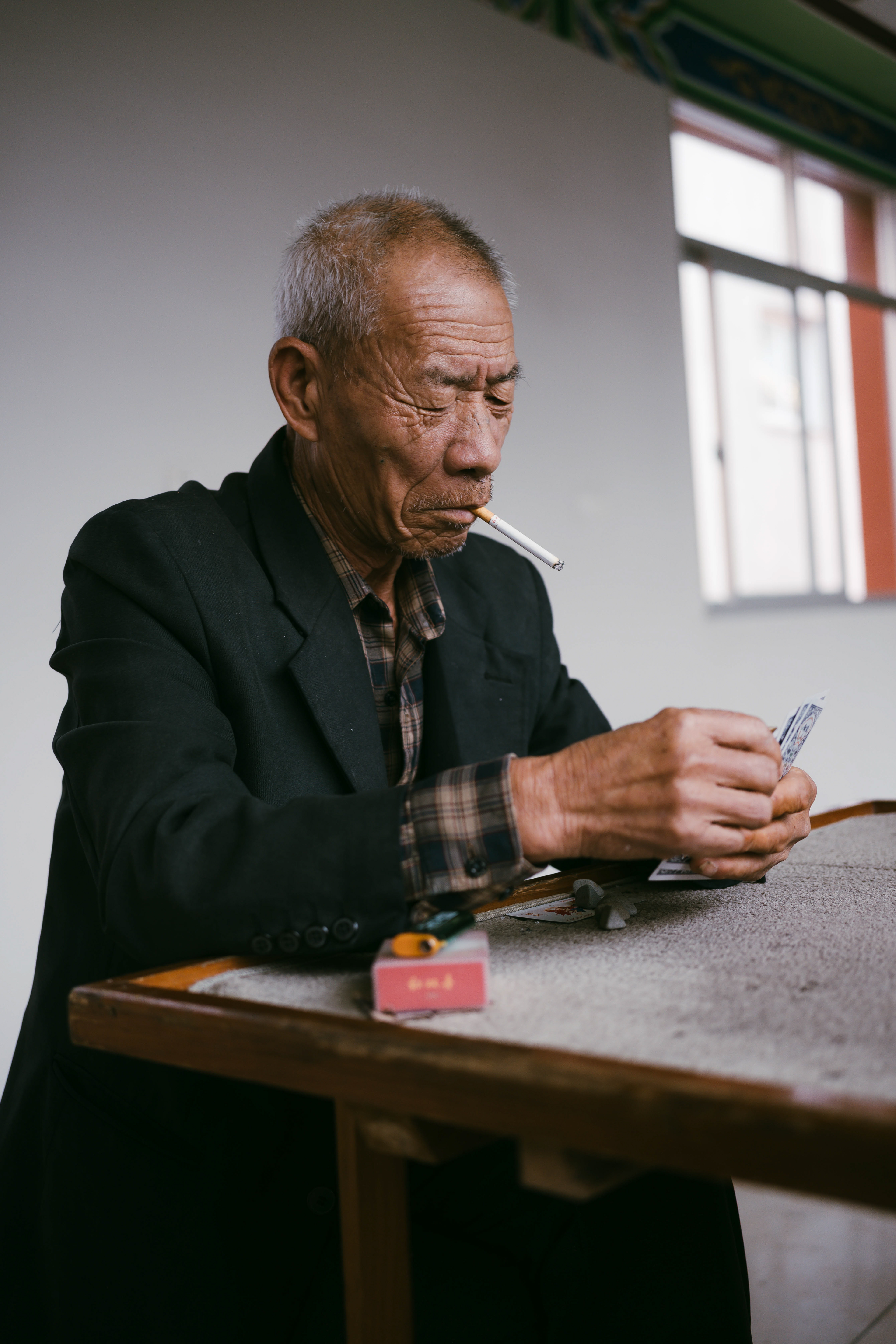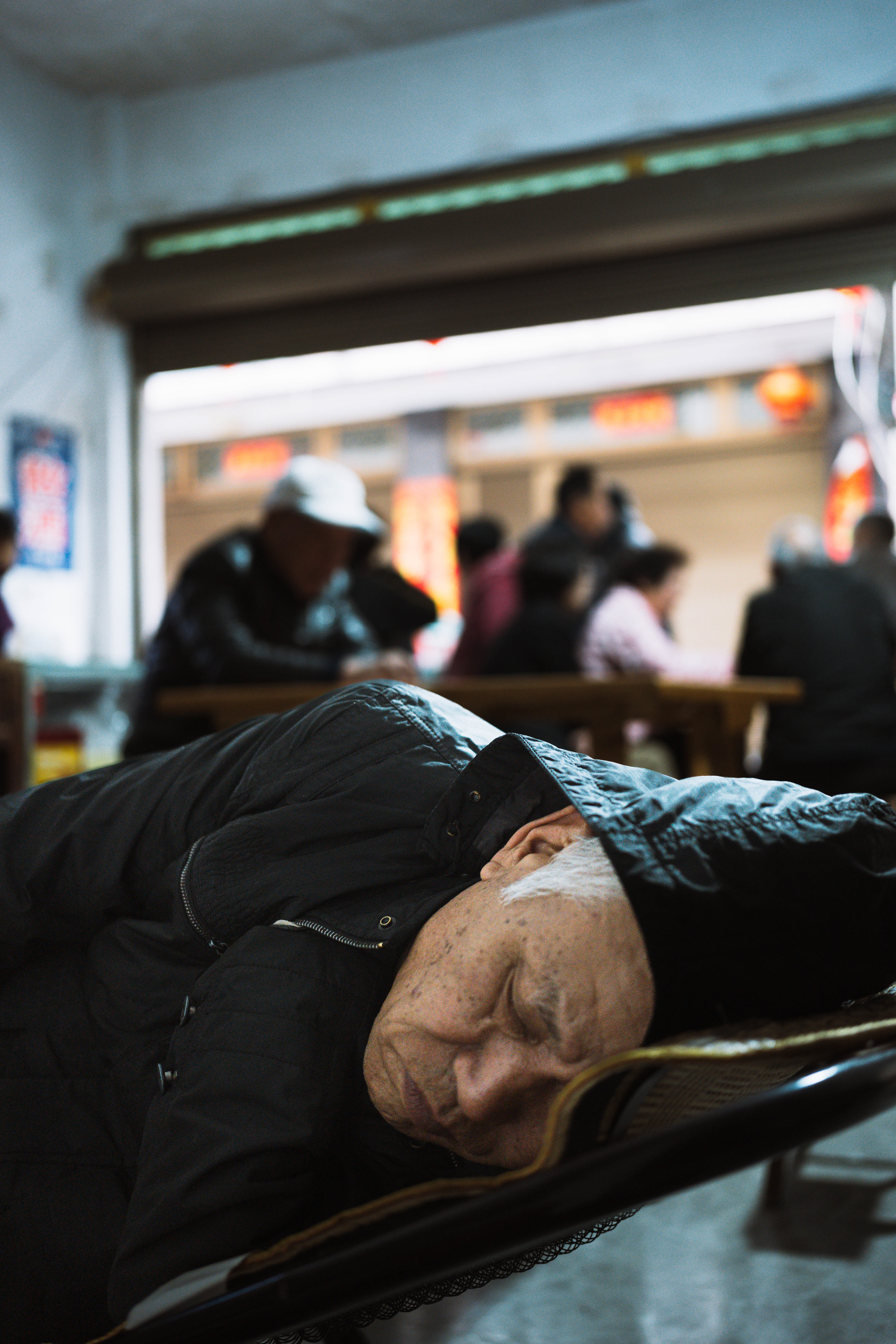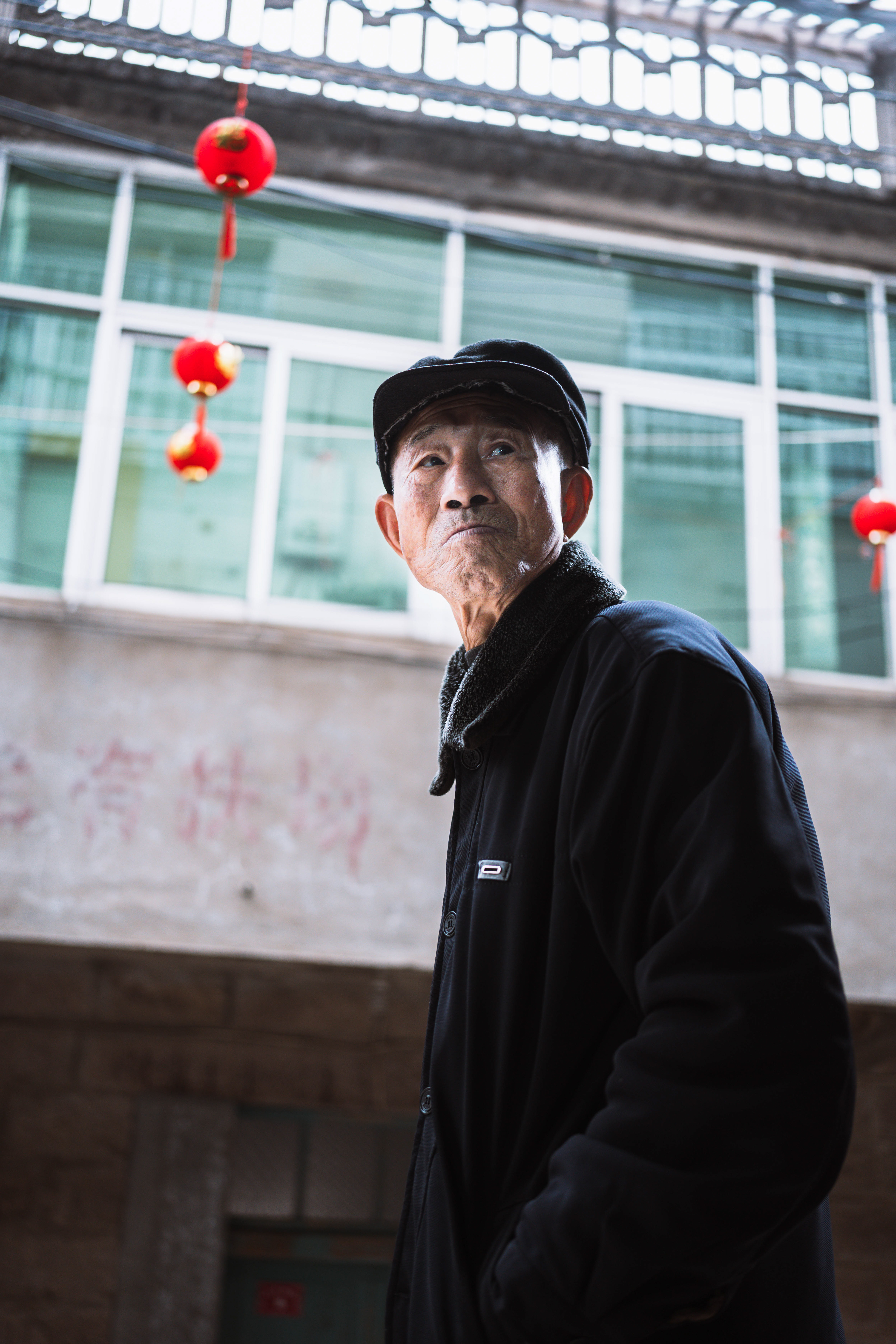EN
This reportage was taken in the rural villages of Fujian, China, where there’s a quiet pulse that beats away from the noise of cities and industrial progress. It's not made of engines or voices, but of silence, plastic stools, playing cards and the soft buzz of a television set in the corner of a tiled room.
These are the village social clubs – community spaces that once served as halls for parades, dance rehearsals, wedding banquets or loud New Year gatherings. Today, their purpose has changed. As the countryside grows older and many young people leave for the cities, these rooms become a place of routine, comfort, and resistance to isolation.
Most of those who gather are men in their seventies and eighties. They arrive slowly, some with hands behind their backs, others with cigarettes in their mouths, and take their place without speaking. Women come too, often less visible, sitting at the back, watching, mending something quietly. The same soap opera plays every afternoon. The same game of cards, half-competitive, half-therapeutic, unfolds under a single fluorescent bulb.
These spaces are neither nostalgic nor performative. They simply exist – functional, frayed, full of life that is no longer hurried. I photographed them not as exotic remnants of the past, but as active forms of present-day socialization: this is how people in rural China resist loneliness, how they create community without needing to define it.
The photos show what words cannot: the way hands move over the game table, the closeness of bodies not touching, the gaze that lingers on a screen, not for the story, but for the comfort of not being alone.
In an age where speed and productivity are measures of value, these village clubs offer a different rhythm. One of stillness. One of shared time.
These are the village social clubs – community spaces that once served as halls for parades, dance rehearsals, wedding banquets or loud New Year gatherings. Today, their purpose has changed. As the countryside grows older and many young people leave for the cities, these rooms become a place of routine, comfort, and resistance to isolation.
Most of those who gather are men in their seventies and eighties. They arrive slowly, some with hands behind their backs, others with cigarettes in their mouths, and take their place without speaking. Women come too, often less visible, sitting at the back, watching, mending something quietly. The same soap opera plays every afternoon. The same game of cards, half-competitive, half-therapeutic, unfolds under a single fluorescent bulb.
These spaces are neither nostalgic nor performative. They simply exist – functional, frayed, full of life that is no longer hurried. I photographed them not as exotic remnants of the past, but as active forms of present-day socialization: this is how people in rural China resist loneliness, how they create community without needing to define it.
The photos show what words cannot: the way hands move over the game table, the closeness of bodies not touching, the gaze that lingers on a screen, not for the story, but for the comfort of not being alone.
In an age where speed and productivity are measures of value, these village clubs offer a different rhythm. One of stillness. One of shared time.
IT
Questo reportage è stato realizzato nei villaggi rurali del Fujian, in Cina, dove pulsa un ritmo silenzioso, lontano dal rumore delle città e dal progresso industriale. Non è fatto di motori o voci, ma di silenzio, sgabelli di plastica, carte da gioco e il leggero ronzio di un televisore nell'angolo di una stanza piastrellata. Questi sono i circoli sociali dei villaggi: spazi comunitari che un tempo fungevano da sale per sfilate, prove di danza, banchetti nuziali o rumorosi raduni di Capodanno. Oggi, il loro scopo è cambiato. Con l'invecchiamento della popolazione nelle campagne e la partenza di molti giovani per le città, questi spazi diventano un luogo di routine, comfort e resistenza all'isolamento. La maggior parte di coloro che si riuniscono sono uomini tra i settant'anni e gli ottant'anni. Arrivano lentamente, alcuni con le mani dietro la schiena, altri con le sigarette in bocca, e prendono posto senza parlare. Anche le donne vengono, spesso meno visibili, sedute in fondo, a guardare, a riparare qualcosa in silenzio. La stessa soap opera va in onda ogni pomeriggio. Lo stesso gioco di carte, per metà competitivo e per metà terapeutico, si svolge sotto una singola lampadina fluorescente. Questi spazi non sono nostalgici, semplicemente esistono: funzionali, sfilacciati, pieni di una vita che non è più frettolosa. Li ho fotografati non come resti esotici del passato, ma come forme attive di socializzazione odierna: è così che le persone nella Cina rurale resistono alla solitudine, come creano comunità senza bisogno di definirla. Le foto mostrano ciò che le parole non possono: il modo in cui le mani si muovono sul tavolo da gioco, la vicinanza dei corpi che non si toccano, lo sguardo che indugia su uno schermo, non per la storia, ma per il conforto di non essere soli. In un'epoca in cui velocità e produttività sono misure di valore, questi club di villaggio offrono un ritmo diverso. Un ritmo di quiete. Un ritmo di tempo condiviso.
Click on each image to enlarge
